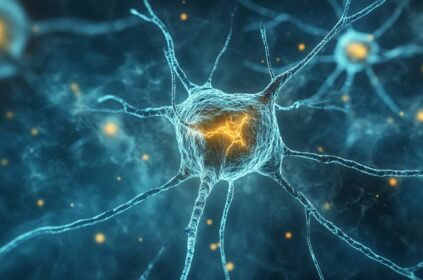Delta-9 THC and Appetite Stimulation: A Comprehensive Guide
Introduction
Delta-9 tetrahydrocannabinol (Delta-9 THC) is best known for its psychoactive properties, but it is the way it influences hunger that captures the interest of many. Often colloquially referred to as “the munchies,” the relationship between Delta-9 THC and appetite is grounded in science, revealing a fascinating interaction with the body’s endocannabinoid system and metabolic pathways. In this guide, we will unpack the mechanisms behind Delta-9 THC’s appetite stimulation, explore its role in various bodily processes, and discuss the implications for both general use and medical applications.
How Delta-9 THC Interacts with the Body
The Endocannabinoid System
At the core of understanding how Delta-9 THC affects appetite lies the endocannabinoid system (ECS). This complex network of receptors and signaling molecules plays a vital role in regulating many physiological processes, including mood, pain perception, and hunger.
The ECS has two primary types of receptors:
- CB1 receptors: Predominantly located in the brain and certain peripheral tissues, including the stomach.
- CB2 receptors: Primarily found in the immune system and peripheral nervous system.
Delta-9 THC predominantly binds to CB1 receptors, which initiates a chain of biological events leading to increased appetite.
Activation of CB1 Receptors
When Delta-9 THC attaches to CB1 receptors, it sparks several responses that promote hunger. Here are some critical processes involved:
- Decrease in PYY Levels: Delta-9 THC lowers levels of peptide tyrosine tyrosine (PYY), a hormone associated with appetite suppression. A decrease in PYY consequently leads to elevated ghrelin levels, signaling the body to seek food.
- Activation of the mTOR Pathway: Through mTOR activation, Delta-9 THC enhances ghrelin production, further boosting appetite and food intake awareness.
- Proopiomelanocortin Neurons: Delta-9 THC affects the proopiomelanocortin (POMC) neurons that manage hunger actions. By favoring the pathways that stimulate appetite, Delta-9 THC can lead to increased food consumption.
Hormonal Influence on Appetite
Ghrelin and Appetite Stimulation
Ghrelin, known as the “hunger hormone,” plays a significant role in how we perceive hunger. Delta-9 THC elevates ghrelin levels, which communicates hunger signals to the brain, effectively amplifying the desire to eat. This hormonal shift directly demonstrates how the body responds to Delta-9 THC’s presence and the subsequent increase in appetite.
Other Hormonal Effects
Delta-9 THC’s role in appetite regulation extends beyond ghrelin. It can also affect the hypothalamus-pituitary-thyroid (HPT) axis, leading to hormonal changes that may indirectly influence hunger and metabolism:
- Metabolic Rate: Changes in levels of thyroid hormones due to Delta-9 THC may result in altered metabolic rates, affecting how the body utilizes food and energy.
Metabolic and Endocrine Impacts
Metabolic Effects
The metabolic impact of Delta-9 THC is multifaceted, involving how it affects caloric intake and food choices:
- Increased Caloric Intake: Delta-9 THC enhances not just appetite but also the palatability of food. Research indicates that increased food consumption is often associated with the activation of CB1 receptors, inviting a desire for higher-calorie foods.
- Food Preferences: Delta-9 THC can skew food choices toward sweeter or saltier options, likely because of enhanced sensory experiences associated with those flavors.
Endocrine System Regulation
Delta-9 THC does not just affect hunger signals but also interacts with the endocrine system, especially the hypothalamus and pituitary gland:
- Hypothalamic Control: By activating CB1 receptors in the hypothalamus, Delta-9 THC can shift the balance of hunger and satiety signals, which may lead to greater food intake.
- Pituitary Gland Effects: The interplay with the pituitary gland can result in decreased secretion of thyroid-stimulating hormone (TSH). Lower TSH can lead to reduced levels of thyroid hormones that influence metabolic rate, thereby adding complexity to appetite regulation.
Practical Applications and Considerations
Delta-9 Edibles for Appetite Enhancement
Among the most straightforward applications of Delta-9 THC is through edibles, such as gummies or baked goods. These products deliver Delta-9 THC in a way that encourages a gradual onset of effects, promoting an extended experience of appetite stimulation. Users report an increased enjoyment of food while consuming these items, representing a practical way to harness Delta-9 THC’s benefits.
Medical Uses
Medical professionals have recognized the ability of Delta-9 THC to enhance appetite, particularly for patients undergoing treatments that diminish their desire to eat. Conditions such as HIV/AIDS and cancer often create a barrier to healthy weight maintenance. Controlled use of Delta-9 THC can effectively improve nutritional intake and quality of life in these populations.
Conclusion
Understanding the connection between Delta-9 THC and appetite enhancement unveils a complex web woven from hormonal mechanisms, metabolic processes, and the impact on the endocrine system. As you grasp the significance of Delta-9 THC’s interaction with the body’s receptors and its broader implications, you can make informed decisions about its use.
Whether you’re exploring Delta-9 THC for its appetite-enhancing effects or if you’re considering its medical applications, it’s essential to approach this compound with knowledge and caution. By consulting healthcare providers and choosing the right consumption methods, one can use Delta-9 THC safely to achieve desired outcomes.
Actionable Tips
- Consult a Healthcare Provider: If considering Delta-9 THC for appetite support, especially in medical contexts, discuss your intentions with a healthcare provider for personalized advice.
- Select the Right Consumption Method: Each consumption method alters the effects—choose what fits your lifestyle and health needs best.
- Observe Hormonal Changes: Stay mindful of how Delta-9 THC may influence your hormonal and metabolic changes, allowing you to maintain overall health effectively.
Equipped with this knowledge, you are now ready to explore the impactful role of Delta-9 THC in appetite stimulation while ensuring a balanced lifestyle. Understanding these dynamics can empower you to make informed choices, whether for medical or recreational purposes.




















